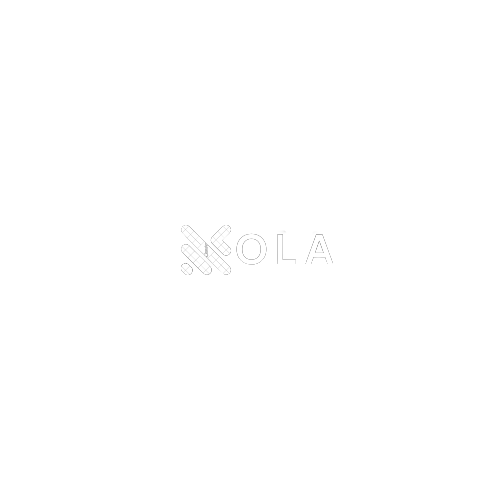
How to Build Cryptocurrency Exchange Website in Nigeria
Nigeria’s adoption of cryptocurrencies is one of the highest in the world. If you are looking to building a crypto exchange platform, you are a forward thinking person looking in the direction of the future of global finance
Building a cryptocurrency exchange website in Nigeria involves several steps, from legal considerations and technical development to payment integration and security features. It’s a project that need lots of planning, strategic thinking and speedy execution.
Below are some of the things you need to know if you want to build a crypto exchange platform in Nigeria. Let’s get down to it:
1. Understand the Regulatory Landscape
- Research Local Laws: Cryptocurrency regulation in Nigeria is complex. The Central Bank of Nigeria (CBN) has placed restrictions on crypto transactions for banks, but individuals still participate in crypto trading through P2P exchanges.
- Obtain Licenses and Permits: Consult with a legal expert to understand if and how you can operate. As the regulatory landscape may shift, staying updated with CBN and SEC guidelines is essential.
2. Define the Exchange Model
- Centralized Exchange (CEX): Allows direct trading on your platform, requiring you to handle user funds and secure them.
- Decentralized Exchange (DEX): Uses smart contracts to facilitate trades without a central authority. It’s less resource-intensive but has fewer features for fiat trading.
- Peer-to-Peer (P2P): Offers direct transactions between users with escrow services, especially popular in Nigeria due to the CBN’s restrictions.
3. Develop the Core Features
- User Registration and Authentication: Enable secure sign-ups with Know Your Customer (KYC) verification, often required by law to prevent fraud.
- Wallets for Different Cryptocurrencies: Integrate wallets to store popular cryptocurrencies like Bitcoin, Ethereum, and stablecoins. For P2P, enable wallets that secure funds during transactions.
- Trading Engine: This is the core feature that matches buy and sell orders. It requires real-time order processing to ensure accurate trades.
- Admin Dashboard: An admin panel for monitoring trades, managing fees, handling customer queries, and keeping the system running smoothly.
- Liquidity Management: For centralized exchanges, liquidity is crucial. Partner with other exchanges to build liquidity or consider a market maker.
- Payment Gateway Integration: If you want to offer fiat-to-crypto trading, partner with local payment processors that can facilitate fiat deposits and withdrawals.
4. Choose the Right Technology Stack
- Front-End Development: Build a responsive, user-friendly front end using frameworks like React, Angular, or Vue.js.
- Back-End Development: A strong back end can be built with Node.js, Ruby on Rails, or Django. This should handle API calls, data processing, and security features.
- Blockchain Integration: Use libraries like Web3.js or blockchain APIs for interactions with the blockchain.
- Database: Choose databases like PostgreSQL or MongoDB for storing user data securely.
- Security Frameworks: Apply OAuth and other frameworks for strong authentication and user data protection.
5. Implement Security Protocols
- SSL Certificates: Secure all data transmission with SSL.
- Two-Factor Authentication (2FA): Essential for user account security.
- Cold Storage: Store the majority of funds in offline wallets, with only a fraction available for active trading in hot wallets.
- DDoS Protection and Encryption: Prevent attacks with DDoS protection and encrypt sensitive data.
- Regular Security Audits: Work with security experts to perform penetration testing and code audits to identify vulnerabilities.
6. Design an Intuitive User Interface
- Create a clean, easy-to-navigate UI with clear sections for trading, wallet management, and account settings. This will enhance user experience and trust.
- Offer tools such as real-time charts, order books, and transaction history for informed trading.
7. Integrate Fiat Options through P2P
- Offer a P2P service that allows users to exchange cryptocurrencies with fiat currency directly. Add an escrow feature to hold funds securely during trades, releasing them once both parties confirm the transaction.
- Include local payment options such as bank transfers and mobile money to simplify the exchange process.
8. Testing and Deployment
- Functional Testing: Ensure all features work as expected, from registration to transaction processing.
- Load Testing: Test how the platform performs under heavy user traffic.
- Security Testing: Run extensive security checks to ensure the exchange is well-protected.
- Beta Launch: Launch a beta version to get user feedback and fix any issues before a full launch.
9. Launch and Market the Exchange
- Influencer Partnerships: Collaborate with Nigerian influencers and crypto enthusiasts to spread the word.
- Social Media Marketing: Use platforms like Twitter, Telegram, and Instagram to engage the crypto community.
- Affiliate Program: Offer incentives for users to refer friends, expanding your user base organically.
10. Ongoing Maintenance and Customer Support
- 24/7 Support: Offer round-the-clock customer service for any issues users may face.
- Regular Updates: Keep the exchange up-to-date with software patches and new security protocols.
- Compliance Updates: Continuously review legal regulations and make adjustments to stay compliant with Nigerian and international laws.
Key Considerations
- Local Market Needs: Nigeria has a strong interest in Bitcoin and stablecoins. Tailor the exchange to include these assets prominently.
- Regulation Monitoring: Monitor the Central Bank and SEC policies closely, as Nigerian crypto regulations can change.
- Competitive Fees: Offer competitive transaction fees to attract users in the crowded exchange market.
Building a crypto exchange in Nigeria requires careful planning, technical expertise, and regulatory awareness, but with the right approach, it can be highly successful.
Ola Digital have the expertise to develop a crypto exchange platform for your company. We had developed more complicated project like Video streaming platform, a social media platform, digital wallet apps and so on. Sen us a message today.









